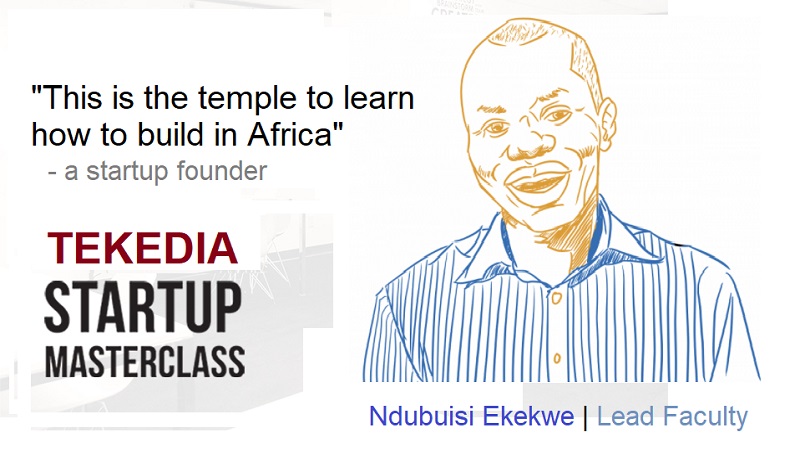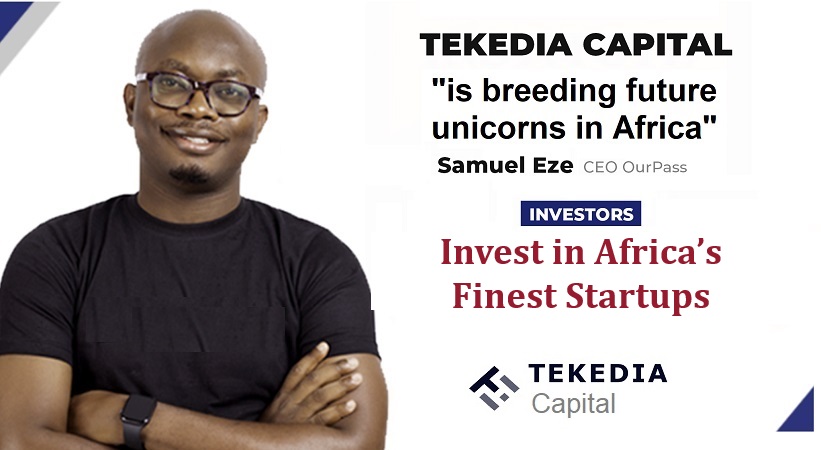News
What is an NFT? – Forbes Advisor

Editorial Note: We earn a commission from partner links on Forbes Advisor. Fees do not influence the opinions or ratings of our editors.
Non-fungible tokens (NFTs) seem to be everywhere these days. From art and music to tacos and toilet paper, these digital assets sell like they did in the 17th century Exotic Dutch tulips– some for millions of dollars.
But are NFTs worth the money or the hype? Some experts say they are a bubble ready to burst, like the dot-com craze or Beanie Babies. Others believe that NFTs are here to stay and will change investing forever.
What is an NFT?
An NFT is a digital asset that can come in the form of art, music, game items, videos, and more. They are bought and sold online, often with cryptocurrencyand are generally coded with the same underlying software as many cryptocurrencies.
Although they have been around since 2014, NFTs are gaining notoriety now because they are becoming an increasingly popular way to buy and sell digital artwork. The NFT market was worth a staggering $41 billion in 2021 alone, a figure approaching the total value of the entire global fine art market.
NFTs are also generally one-of-a-kind, or at least very limited-run, and have unique identifying codes. “Essentially, NFTs create digital scarcity,” says Arry Yu, president of the Washington Technology Industry Association’s Cascadia Blockchain Council and managing director of Yellow Umbrella Ventures.
This is in stark contrast to most digital creations, the supply of which is almost always infinite. Hypothetically, cutting supply should increase the value of a given asset, assuming it is in demand.
But many NFTs, at least in these early days, have been digital creations that already exist in some form elsewhere, like iconic video clips from NBA games or securitized versions of digital art already floating around Instagram.
Renowned digital artist Mike Winklemann, better known as “Beeple,” created a set of 5,000 daily drawings to create perhaps the most famous NFT of 2021, “EVERYDAYS: The First 5000 Days,” which sold at Christie’s for a record $69.3 million.
Anyone can view individual images or even the entire image collage online for free. So why are people willing to spend millions on something they could easily screenshot or download?
Because an NFT allows the buyer to own the original item. Not only that, it contains built-in authentication, which serves as proof of ownership. Collectors value these “digital bragging rights” almost more than the object itself.
How is an NFT different from cryptocurrency?
NFT stands for non-fungible token. It is generally built using the same type of programming as cryptocurrency, for example Bitcoin OR Ethereumbut that’s where the similarities end.
Physical money and cryptocurrencies are “fungible,” meaning they can be exchanged or exchanged with each other. They also have the same value: a dollar is always worth another dollar; one Bitcoin is always the same as another Bitcoin. The fungibility of cryptocurrencies makes them a reliable means of conducting transactions on the blockchain.
NFTs are different. Each has a digital signature that makes NFTs impossible to exchange or match with each other (hence non-fungible). An NBA Top Shot clip, for example, is not the same as EVERYDAYS simply because they are both NFTs. (One NBA Top Shot clip isn’t even necessarily the same as another NBA Top Shot clip, for that matter.)
Best Cryptocurrency Exchanges of 2024
We’ve looked at major exchange offerings and reams of data to determine the best cryptocurrency exchanges.
How does an NFT work?
NFTs exist on a blockchain, which is a distributed public ledger that records transactions. You are probably more familiar with blockchain as the underlying process that makes cryptocurrencies possible.
Specifically, NFTs are generally held on Ethereum blockchain, although other blockchains also support them.
An NFT is created, or “minted” from digital objects that represent both tangible and intangible items, including:
- Graphic art
- GIF
- Sports videos and highlights
- Collectibles
- Virtual avatars and skins for video games
- Designer sneakers
- Music
Tweets matter too. Twitter co-founder Jack Dorsey sold his first-ever tweet as an NFT more than $2.9 million.
Essentially, NFTs are like physical collectibles, only digital. So instead of getting a real oil painting to hang on the wall, the buyer receives a digital file instead.
They also have exclusive ownership rights. NFTs can only have one owner at a time, and their use of blockchain technology makes it easy to verify ownership and transfer tokens between owners. The creator can also store specific information in an NFT’s metadata. For example, artists can sign their artwork by including their signature in the file.
What are NFTs for?
Blockchain technology and NFTs offer artists and content creators a unique opportunity to monetize their wares. For example, artists no longer have to rely on galleries or auction houses to sell their art. Instead, the artist can sell it directly to the consumer as an NFT, which also allows him to keep more of the profits. Additionally, artists can schedule royalties to receive a percentage of sales each time their art is sold to a new owner. This is an interesting feature since artists generally receive no future proceeds after their art is sold for the first time.
Art isn’t the only way to make money with NFTs. Brands like Charmin and Taco Bell have auctioned off themed NFT artwork to raise money for charity. Charmin dubbed its offering “NFTP” (non-fungible toilet paper), and Taco Bell’s NFT art sold out in minutes, with the highest bids coming in at 1.5 Wrapped Ether (WETH), equal to $3,723 .83 at the time of writing.
Nyan Cat, a 2011 GIF of a cat with a pop-tart body, sold for almost $600,000 in February. And NBA Top Shot has generated more than $500 million in sales starting at the end of March. A single LeBron James NFT brought in more than $200,000.
Celebrities like Snoop Dogg and Lindsay Lohan are also jumping on the NFT bandwagon, releasing mementos, artworks and one-of-a-kind moments as securitized NFTs.
How to buy NFTs
If you want to start your NFT collection, you’ll need to acquire a few key items:
First, you’ll need to get a digital wallet that allows you to store NFTs and cryptocurrencies. You will probably have to buy some cryptocurrency, such as Ether, depending on the currencies accepted by your NFT provider. You can buy cryptocurrencies using a credit card on platforms like Coinbase, Kraken, eToro and even PayPal and Robinhood now. You can then move it from the exchange to your favorite wallet.
You’ll want to keep rates in mind as you research your options. Most exchanges charge at least a percentage of the transaction when you purchase cryptocurrencies.
Featured partner offer
Sorare is a fantasy football game using NFTs that lets you purchase, verifiably own, and resell digital player cards from over 200 licensed teams
You can play fantasy league lineups twice a week to win prizes, as well as buy and sell in-game cards
Welcome offer:
Deposit $100 and get a $10 bonus! (Only U.S)
Cryptocurrencies available for trade
20+
Popular NFT Markets
Once you’ve set up and funded your wallet, there’s no shortage of NFT sites to shop on. Currently, the largest NFT markets are:
• OpenSea.io: This peer-to-peer platform bills itself as a provider of “rare and collectible digital items.” To get started, all you need to do is create an account to browse NFT collections. You can also sort pieces by sales volume to discover new artists.
• Rare: Similar to OpenSea, Rarible is a democratic and open marketplace that allows artists and creators to issue and sell NFTs. RARI tokens issued on the platform allow holders to evaluate features such as fees and community rules.
• Foundation: Here, artists must receive “upvotes” or an invitation from other creators to post their art. The community’s exclusivity and cost of entry – artists also have to purchase “gas” to mint NFTs – means it can boast artwork of a higher caliber. For example, Nyan Cat creator Chris Torres sold the NFT on the Foundation platform. It could also mean higher prices – not necessarily a bad thing for artists and collectors looking to capitalize, assuming demand for NFTs remains at current levels, or even increases over time.
While these and other platforms are home to thousands of NFT creators and collectors, be sure to do your research carefully before purchasing. Some artists have fallen victim to imitators who have published and sold their works without their permission.
Additionally, the verification processes for NFT creators and listings are not consistent across all platforms – some are more rigorous than others. OpenSea and Rarible, for example, do not require owner verification for NFT listings. Buyer protections seem slim at best, so when purchasing NFTs, it may be best to keep the old adage “caveat emptor” (let the buyer beware) in mind.
Should You Buy NFTs?
Just because you can buy NFTs, does that mean you should? It depends, says Yu.
“NFTs are risky because their future is uncertain and we don’t yet have much history to judge their performance,” he notes. “Since NFTs are so new, it may be worth investing small sums to try them for now.”
In other words, investing in NFTs is a largely personal decision. If you have money to spend, it might be worth considering, especially if a piece has meaning to you.
But keep in mind that the value of an NFT is based entirely on what someone else is willing to pay for it. Therefore, demand will drive price rather than fundamental, technical or economic indicators, which typically influence stock prices and at least generally form the basis for investor demand.
All of this means that an NFT can be resold for less than you paid for it. Or you may not be able to resell it at all if no one wants it.
NFTs are also subject to capital gains taxes– just like when you sell shares at a profit. Since they are considered collectibles, however, they may not receive the preferential long-term capital gains rates of stocks and may also be taxed at a higher collectible tax rate, although the IRS has not yet determined which NFTs are considered for tax purposes. Please note the cryptocurrencies used to purchase the NFT they may also be taxed if they have increased in value since you purchased them, which means you may want to check with a tax professional when considering adding NFTs to your portfolio.
That said, approach NFTs just as you would any investment: do your research, understand the risks, including that you could lose all of your invested dollars, and if you decide to take the plunge, proceed with a healthy dose of caution.
News
US Cryptocurrency Rules Delayed by ‘Never-Ending’ Lawsuits
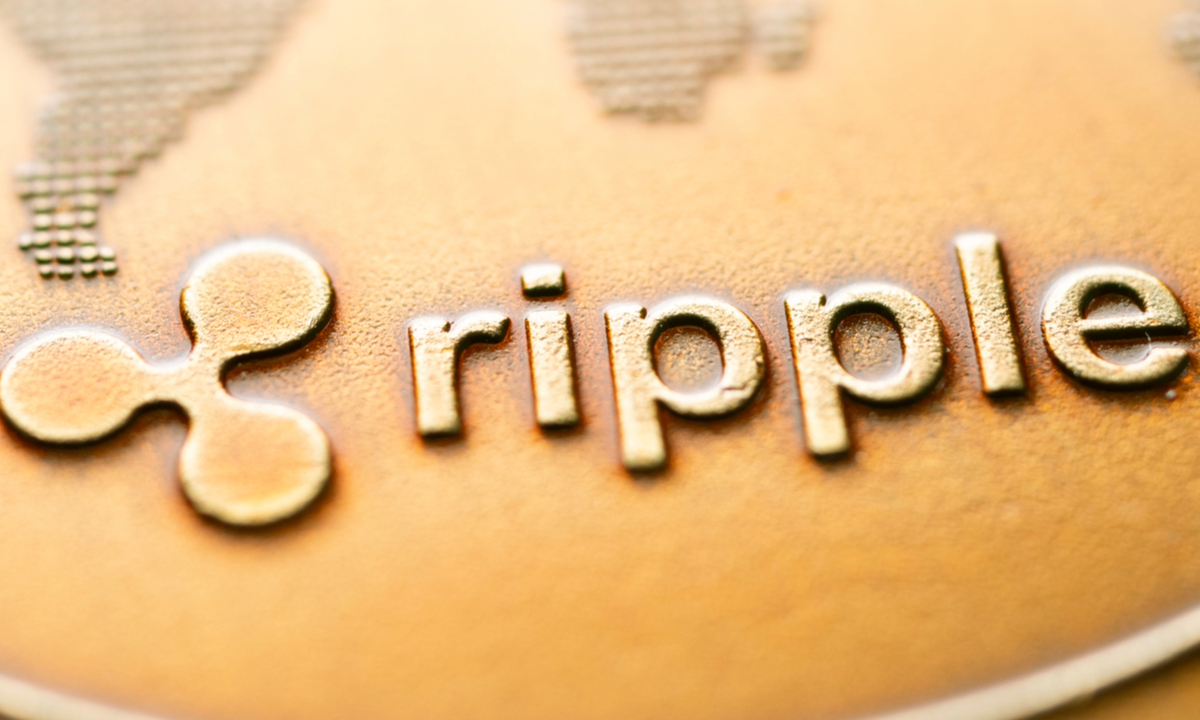
Ripple CEO says cryptocurrency industry still seeking regulatory clarity from US
Speaking to Bloomberg News on Wednesday (July 17), Author: Brad Garlinghouse he said America is behind behind other countries which have already adopted cryptocurrency regulations.
“What we’re seeing, where it’s the UK, Japan, Singapore… even the European Union, more than two dozen countries have come together to provide a framework for cryptocurrency regulation,” Garlinghouse said.
“It’s frustrating that we as a country can’t get that regulatory framework in place. And instead, we have this never-ending lawsuit coming from the SEC that doesn’t really address the problem.”
Ripple has been the target of some of these legal disputes. Securities and Exchange Commission (SEC) sued the company in 2020, accusing it of conducting a $1.3 billion operation offering of unregistered securities tied to its XRP token.
However, last year a judge ruled that only Ripple’s institutional sales of XRP, not retail sales, violated the law, a decision widely seen as a victory for the cryptocurrency industry.
As PYMNTS noted at the time, that ruling has “far-reaching repercussions impact across the digital asset ecosystem, which has long maintained that its tokens do not represent securities contracts.”
However, Garlinghouse told Bloomberg on Wednesday that the company cannot wage multimillion-dollar legal battles over each token.
He spoke to the news agency from the Republican National Convention in Milwaukee, where the party is backing the candidacies of former President Donald Trump and Ohio Sen. J.D. Vance, both of whom are considered pro-cryptocurrency.
But Garlinghouse argued that cryptocurrencies “should not be a partisan issue,” and noted that he had recently attended a conference in Washington that included Democrats, including White House officials.
“I think they were there, listening to the industry… it was refreshing to start having that conversation,” she said.
President Joe Biden earlier this year he vetoed a measure which would have ended the SEC’s special rules for crypto-asset custodians. This legislation was supported by both the digital asset industry and the banking industry.
Ripple early this year donated $25 million to the cryptocurrency industry’s super PAC Fair Smoothiewith Garlinghouse stating at the time that such donations would continue every year, as long as the industry had its detractors.
Second Open SecretsWhich monitor spending For campaigns, the PAC has spent $13.4 million this year, much of it to help defeat Rep. Katie Porter’s (D-Calif.) U.S. Senate campaign.
News
The Future of Cybersecurity in the Cryptocurrency Industry
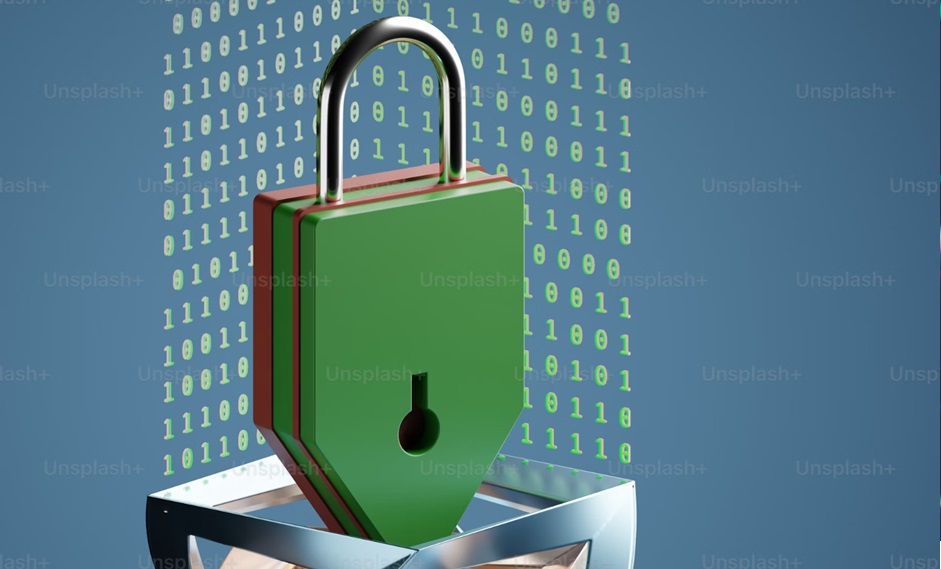
The cryptocurrency space has had a tumultuous journey, with its fair share of ups and downs. As we look to the future, one area that remains a constant focus is cybersecurity. The digital nature of cryptocurrencies makes them inherently vulnerable to cyber threats, and as the industry evolves, so does the landscape of potential risks.
In 2022, the cryptocurrency market faced significant challenges, with over $2 trillion in market value lost. This event served as a wake-up call for the industry, highlighting the need for robust cybersecurity measures. The future of cryptocurrency security is expected to see a shift towards more regulated and established institutions taking the reins of crypto technology and blockchain infrastructure.
The decentralized nature of cryptocurrencies offers numerous benefits, such as transparency and financial inclusion. However, it also introduces unique security challenges. The risk landscape is filled with threats such as hacking, phishing, ransomware attacks, malware, and social engineering. These threats not only lead to financial losses, but also damage the reputation and trust within the cryptocurrency ecosystem.
Mini-MBA Tekedia edition 15 ((September 9 – December 7, 2024) started recordings; Register today for discounts reserved for early bird customers.
Tekedia AI in Business Masterclass Opens registrations Here.
Join the Tekedia Capital Syndicate and IInvest in Africa’s best startups Here.
The decentralized nature of cryptocurrencies offers many benefits, but it also presents unique security challenges. Cyber risks such as hacking, phishing, and ransomware pose threats to the integrity of digital assets. The infrastructure that supports cryptocurrencies is not immune to vulnerabilities, including smart contract flaws and exchange hacks.
To address these vulnerabilities, the infrastructure that supports cryptocurrencies must be strengthened. Smart contract vulnerabilities, exchange hacks, wallet breaches, and flaws in the underlying blockchain technology are significant concerns that must be addressed to ensure the security and integrity of digital assets.
As cybercriminal tactics and techniques become more sophisticated, the cryptocurrency industry must stay ahead of the curve. The future will likely see more targeted attacks, exploiting weaknesses in infrastructure, networks, and human factors. This requires a proactive and multifaceted approach to cybersecurity.
To mitigate these risks, several measures must be adopted:
Strengthening security measures: Developers, exchanges, and wallet providers must improve security protocols, use strong encryption, implement multi-factor authentication, and conduct regular security audits.
Education and awareness: Users should be educated on best practices for protecting their digital assets, including using strong passwords, recognizing phishing attempts, and using hardware wallets for secure storage.
Looking ahead, the cryptocurrency industry is expected to see an increased focus on robust security measures. Blockchain projects and exchanges are likely to invest in advanced encryption techniques and decentralized storage solutions to protect user assets. The future impact of cyber risk on cryptocurrencies will depend on the collective efforts of stakeholders to address vulnerabilities and strengthen security measures.
Collective efforts by stakeholders in the cryptocurrency space are crucial to address vulnerabilities and strengthen security measures. While challenges persist, advances in cybersecurity technologies and practices offer hope for a more secure and resilient cryptocurrency ecosystem.
The future of cybersecurity in the cryptocurrency industry depends on finding a balance between innovation and regulation. It requires a collaborative effort from all parties involved, from developers to end users, to create a secure environment that fosters trust and growth in the industry. As we move forward, it is critical that lessons learned from past events guide the development of stronger security measures, ensuring the longevity and stability of cryptocurrencies as a vital part of the modern economic toolkit.
Like this:
Like Loading…
News
Bullish XRP and RLBK price predictions rise, outpacing the broader cryptocurrency market, prompting Shiba Inu holders to switch!
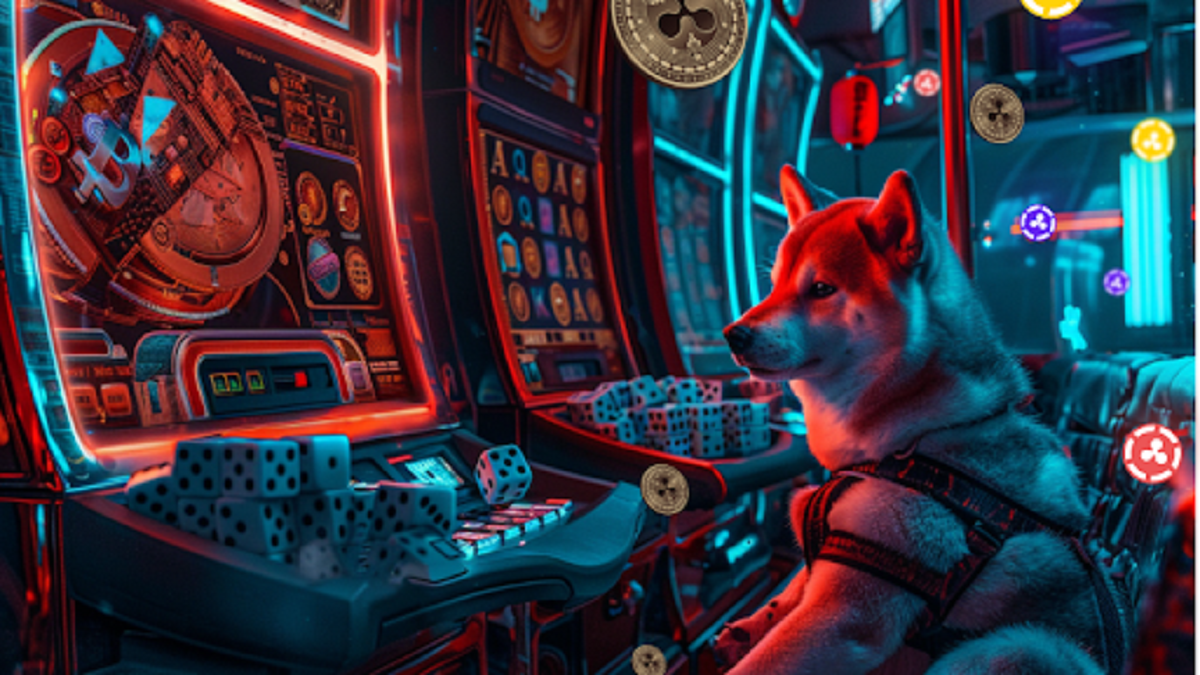
Bitcoin’s one-week surge from $60,000 has pushed other cryptocurrencies into an uptrend. However, for many altcoins, this trend has been temporary. Altcoins such as XRP and Shiba Inu (SHIB) have experienced price drops. However, Rollblock, a new altcoin on the Ethereum blockchain, has thrived during this period, attracting thousands of investors looking for long-term growth.
XRP’s Nearly 30% Growth Over Last Week Drops as Selling Pressure Increases
XRP is seeing further price decline as Ripple investors withdraw their profits from the token. The surge in XRP’s price to $0.64 in the past week has provided investors with a perfect opportunity to increase their returns in the short term. With the ongoing sell-off in XRP, XRP has jumped over 8% in the past day and is now trading at $0.59. However, analysts tracking XRP indicators predict that XRP could still extend its gains by over 30% in the coming weeks.
Shiba Inu (SHIB) marks its third consecutive day of losses
Shiba Inu (SHIB) is in a period of adjustment after a week of strong gains. In the last 24 hours, SHIB has seen a jump of over 7%, reflecting a natural market fluctuation. Analysts are observing a death cross on the Shiba Inu chart, which historically signals the potential for future opportunities as the market stabilizes. As investors explore new possibilities, some are diversifying into promising altcoins like Rollblock (RBLK) to strategically rebalance their portfolios and capitalize on the emerging trend.
Rollblock (RBLK) Up Another 7% as New Investors Join Pre-Sale
Rollblock (RBLK) has taken the cryptocurrency market by storm, having attracted investors from more popular altcoins like Shiba Inu (SHIB) and XRP. Rollblock’s growth is attributed to its utility in the $450 billion global gaming industry.
Rollblock aims to use blockchain technology to bridge the gap between centralized and decentralized gambling. With blockchain technology, Rollblock secures every transaction in its online casino, providing transparency and convenience to millions of players who are uncomfortable placing bets on other iGaming platforms.
This innovative use of blockchain technology in the industry has grown Rollblock to over 4,000 new users in less than two months. With plans to add sports betting, this number is expected to grow exponentially in Q3.
Rollblock uses a revenue sharing model that splits up to 30% of its casino’s weekly profits with token holders. This happens after Rollblock buys back $RBLK from the open market and uses half of it for rewards. The other half is burned to increase the price of $RBLK.
Rollblock price has seen four increases in the past month with $RBLK tokens now selling for $0.017. Analysts predict that at the current growth rate, Rollblock could increase by over 800% before the presale ends. For investors looking for a long-term token with growth potential, phase four is the best time to buy Rollblock before its price skyrockets!
Discover the exciting Rollblock (RBLK) pre-sale opportunities now!
Website:https://Rollblockpresale.io/
Social: https://linktr.ee/Rollblockcasino
No spam, no lies, just insights. You can unsubscribe at any time.
News
Texas Crypto Miners Turn to AI as Crypto Declines
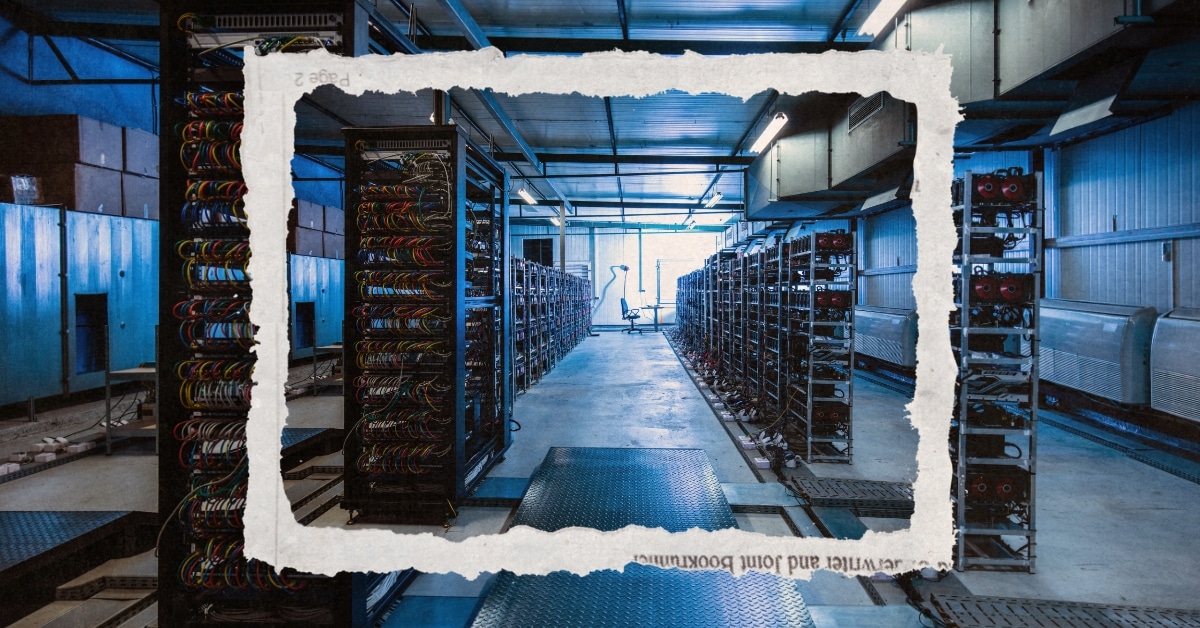
As cryptocurrency mining becomes less profitable, Texas cryptocurrency mining companies are switching to supporting artificial intelligence companies.
Bitcoin miners, with their sprawling data centers and access to significant energy resources, are ideally suited for computationally intensive AI operations, and as cryptocurrency mining becomes less profitable, companies see this shift as a logical answer to their problems.
On Thursday, Houston-based Lancium and Denver-based Crusoe Energy Systems announced a multibillion-dollar deal to build a 200-megawatt data center near the West Texas city of Abilene to support advanced artificial intelligence applications such as medical research and aircraft design, CNBC reported. The plant represents the first phase of a larger 1.2 gigawatt project.
Lancium and Crusoe’s move into AI mirrors a broader trend among bitcoin miners. The combined market capitalization of the top U.S.-listed bitcoin miners hit a record $22.8 billion in June. Companies like Bit Digital and Hut 8 are diversifying into AI, with Bit Digital securing a $92 million annual revenue deal to supply Nvidia GPUs and Hut 8 raising $150 million to expand its AI data center.
But the growing popularity of these operations also presents challenges, particularly for the Texas power grid. Last month, the Electric Reliability Council of Texas announced that the state is expected to nearly double its energy production by 2030 to meet the high energy demands of data centers and cryptocurrency operations.
Lieutenant Governor Dan Patrick expressed concern about the projections.
“Cryptocurrency miners and data centers will account for more than 50% of the additional growth. We need to take a close look at these two sectors,” He wrote on Twitter/X. “They produce very few jobs compared to the incredible demands they place on our network. Cryptocurrency miners could actually make more money selling electricity to the network than they do from their cryptocurrency mining operations.”
Analysts predict significant growth in data center power capacity, which is expected to account for up to 9% of U.S. electricity consumption by 2030.
The operations also pose challenges for nearby cities. Earlier this month, TIME reported that a crypto-mining facility was seriously compromising the health of residents in the city of Granbury. TIME reported more than 40 people with serious health problems, including cardiovascular disease, high blood pressure and hearing loss. At least 10 of the residents needed to go to the emergency room or an urgent care facility.
The disturbances were caused by the extreme noise generated by the crypto-mining facility’s fans, which are used to keep the machines cool. While the proposed data center in Abilene would use liquid cooling systems, it’s still unclear whether the facility’s operations would pose a health risk to local residents.
-

 Nfts1 year ago
Nfts1 year agoShardLab Launches ZK-Based Tool for Digital Identity and NFT Vouchers
-

 News1 year ago
News1 year agoWallet recovery firms are abuzz as stranded cryptocurrency investors panic in the bitcoin boom
-

 Bitcoin1 year ago
Bitcoin1 year agoBitcoin, Ethereum, Solana and Cryptocurrency Markets Look Ready to ‘Send’ as Stars Align, According to Investor Chris Burniske
-
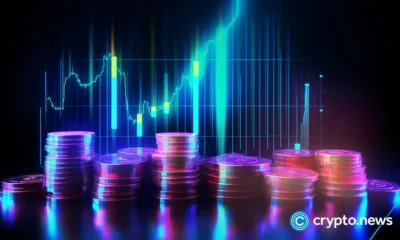
 Altcoins1 year ago
Altcoins1 year agoThree Altcoins Poised for Significant Growth in 2024: ETFS, OP, BLAST
-
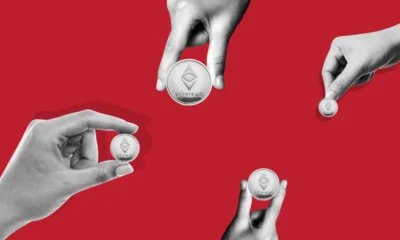
 Altcoins1 year ago
Altcoins1 year agoAccumulate these altcoins now for maximum gains
-

 Nfts1 year ago
Nfts1 year agoOG Crypto Artist Trevor Jones Unveils Groundbreaking Collection of Ordinals | NFT CULTURE | NFT News | Web3 Culture
-

 Bitcoin1 year ago
Bitcoin1 year agoBillionaires are selling Nvidia stock and buying an index fund that could rise as much as 5,655%, according to some Wall Street analysts
-

 Videos9 months ago
Videos9 months agoKamala just won the boner! [Bad For Crypto]
-

 Videos1 year ago
Videos1 year agoLIVE FOMC 🚨 Could be CATASTROPHIC for Altcoins!
-

 News1 year ago
News1 year agoA Guide for Newcomers & Beginners – Forbes Advisor
-

 Videos1 year ago
Videos1 year agoAttention: a historically significant BITCOIN signal has just appeared!
-

 Videos1 year ago
Videos1 year agoSTOCK MARKET FUD! ⚠️ [Why This Is GREAT For Bitcoin Traders!]



